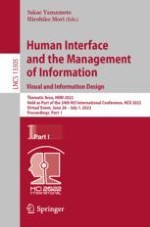2022 | OriginalPaper | Chapter
A Knowledge Sharing Platform for Learning from Others’ Code
Authors : Shintaro Maeda, Kento Koike, Takahito Tomoto
Published in: Human Interface and the Management of Information: Visual and Information Design
Publisher: Springer International Publishing
Activate our intelligent search to find suitable subject content or patents.
Select sections of text to find matching patents with Artificial Intelligence. powered by
Select sections of text to find additional relevant content using AI-assisted search. powered by
